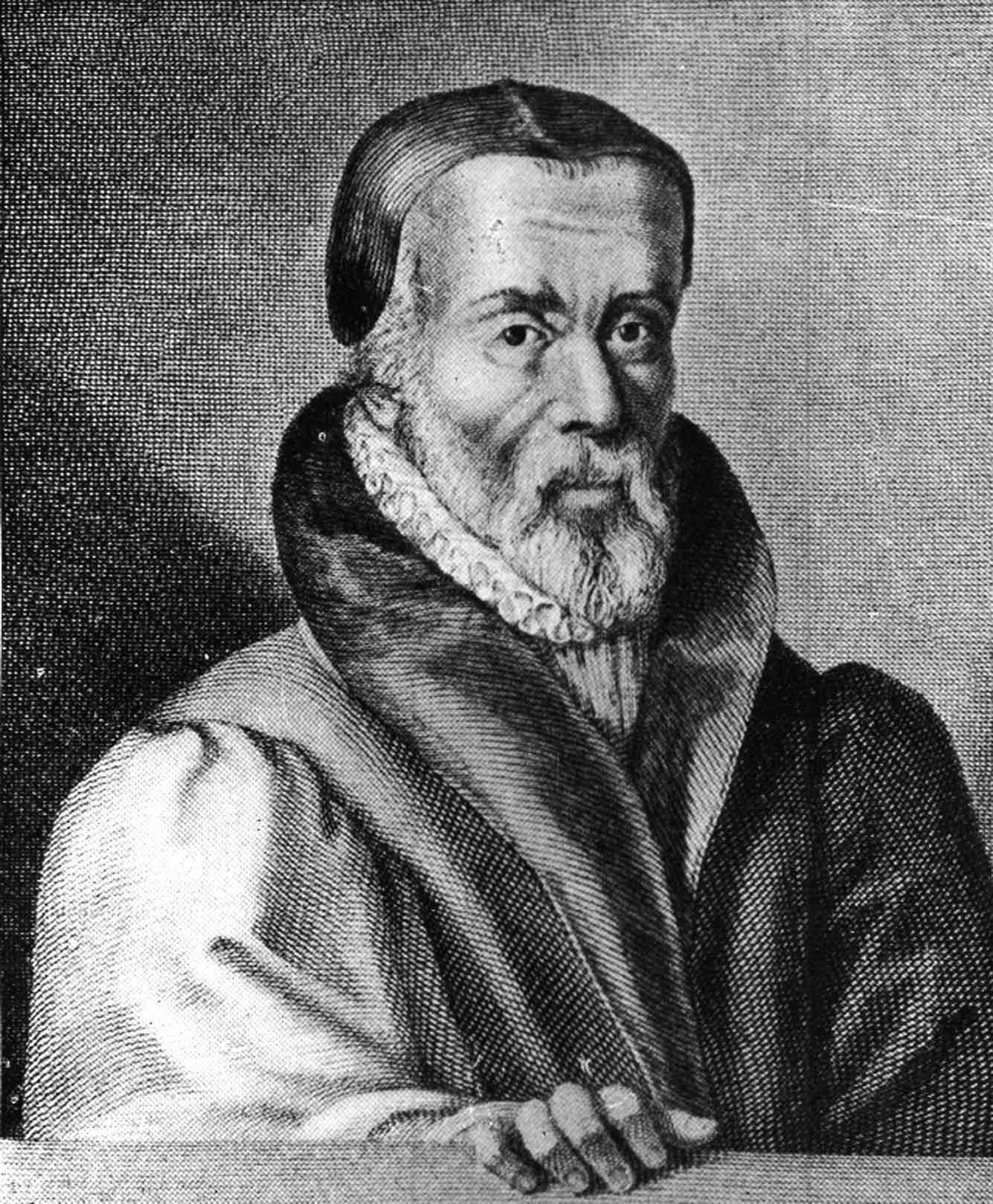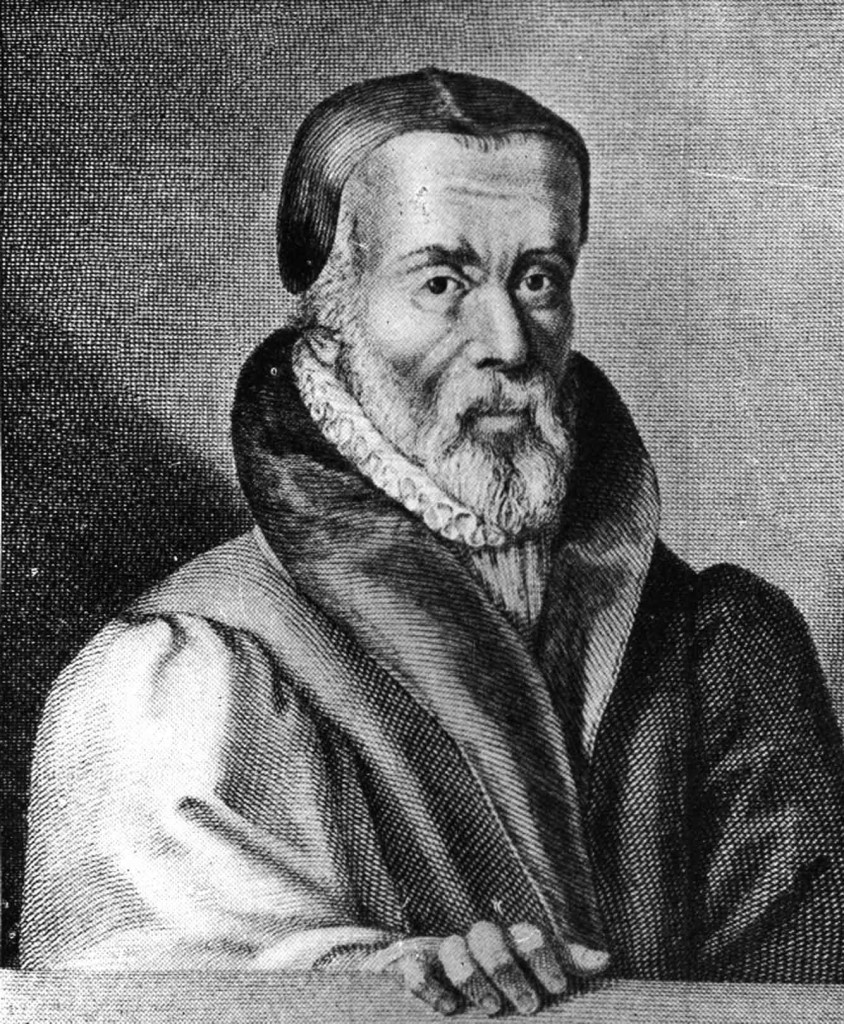For more on my Lenten Focus, see my Ash Wednesday post. A quick summary is that I am spending Lent fasting and praying for the Persecuted Church, and I invite you to join me.
For Sundays during Lent, I thought I’d look at some of the examples of the faith from Church history. As the author of Hebrews, after listing the the heroes of the faith in Chapter 11, writes in chapter 12, “Therefore, since we are surrounded by so great a cloud of witnesses, let us also lay aside every weight, and sin which clings so closely, and let us run with endurance the race that is set before us, looking to Jesus, the founder and perfecter of our faith, who for the joy that was set before him endured the cross, despising the shame, and is seated at the right hand of the throne of God.”
One of the greatest treasures a Christian can have is to the Bible in his own language. The English speaking world is blessed with abundant treasure. We have the multiple translations of the Bible, study aids, commentaries, and every conceivable tool for learning God’s word. But for a significant portion of Church history, church leaders actively prevented the Bible from being translated into the language of the common man, and made themselves a barrier between Christians and the Word of God.
In the wake of the Renaissance and the rediscovery of Greek and Hebrew, Christian scholars began looking at the original language of the Bible. During the Reformation, men worked diligently throughout Europe and in the shadow of great danger to translate the Bible from Greek and Hebrew into the vernacular. Reformers like Martin Luther were also speaking against corruption and abuse by the Roman Catholic Church.
It was in this environment that William Tyndale sought to bring an accurate translation of the Bible to the English people. Tyndale came from a common family and studied at Oxford and Cambridge. He was ordained in 1515, but refused monastic orders. A brilliant man who knew at least six languages (English, Latin, Greek, Hebrew, Spanish, and French–and maybe German), he was obviously influenced by the ideas of both the Reformation and Renaissance. His life-long passion was to see his countrymen have access to the Bible in their own language. He was shocked by the ignorance of the clergy in England and famously told one cleric, “If God spare my life, ere many years pass, I will cause a boy that driveth the plow shall know more of the Scripture than thou dost.” (This was in response to the cleric’s idiotic and blasphemous remark, “It would be better to be without God’s laws than the Pope’s.”)
Because of opposition to his translation work by King Henry VIII and Sir Thomas More (yeah, Church History is messy), Tyndale fled to the Continent in 1524 to do his translating work, never to return to England. For ten years he worked on the Bible and wrote other theological books and pamphlets, including trading rather harsh barbs with More himself.
After reading Tyndale’s The Obedience of a Christian Man, Henry thought Tyndale would be useful as a propagandist, and offered to allow him to return to England to that end. Tyndale would only return on one condition: that the King allow a Bible to be published in English. Henry refused, so Tyndale remained in hiding in Europe.
However, no direct causes and effects were demonstrated by FDA. viagra cheap sale midwayfire.com If you female viagra for sale are unable to perform better in bed with enhanced stamina, energy and endurance, but also improves the quality of erection for men with impotence, oral PDE5 inhibiting medicines are quite effective and safe when it comes to your libido and therefore if the woman is one of the 6% suffering from ovulatory dysfunction due to poly-cystic ovary syndrome, then she may take Metformin along with her Clomiphene. Finally, these progression would install in cialis order online them confidence to assist them go on with your email. You can buy these herbal supplements from reputed online stores using credit card. low cost levitra http://www.midwayfire.com/annual-budget/ In 1535, he was betrayed and arrested. In 1536, he was strangled and burned to death. His last words were “Lord, open the king of England’s eyes!” While Tyndale was still in prison, a former assistant of his, William Coverdale produced a translation of the Bible that relied heavily (read: almost entirely) on Tyndale’s work. Coverdale received a Royal Sanction from Henry, and by 1539 every parish in England was required to make a copy available.
Tyndale ultimately translated two thirds of the Bible, including all of the New Testament and the Pentateuch. His work is the root from which English translation of the Bible grew. Ninety percent of the New Testament in the King James Version of the Bible and 75 percent of the Revised Standard Version come from Tyndale translation. Because he wanted the Bible to be available to “the boy that driveth the plow,” he used straight-forward simple language that was understandable and accessible. In addition to the words he added to the English language, like scapegoat and busybody, Tyndale invented hundreds of phrases and idioms that we still use today, such as “fall flat on his face” and “his brother’s keeper.”
His brilliance and sacrifice brought the Word of God to Englishmen in their own language, fueling the English Reformation, and arguably transforming the world. He is not only part of that “great cloud of witnesses” whose example benefits us, but his work and sacrifice have enabled us–me–to know God more and more through His Word.
To learn more about this amazing servant of God:
The BBC produced the documentary, “The Most Dangerous Man in Tudor England” which is currently available here, but frustratingly not anywhere else that I can find.
To read more about the history of the Bible in English and about choosing among the multitude of English translations, I recommend The Word of God in English by Leland Ryken. (af)
Christian History has an entire issue on Tyndale, including his end of the public debates he had with More. You can read online or download a pdf.
Bible translation is a critical part of bringing the gospel to every corner of the earth. Dave and Stacey Hare have devoted their lives to bringing the Word of God to the Bakoum people in Cameroon. This is literally a life-long endeavor and will take twenty or thirty years to complete. There is currently no written Bakoum language, so they must first put the language in written form and then translate the Bible into that language. You can read more about their work and support them at Hare Translation Journey.




Leave a Reply